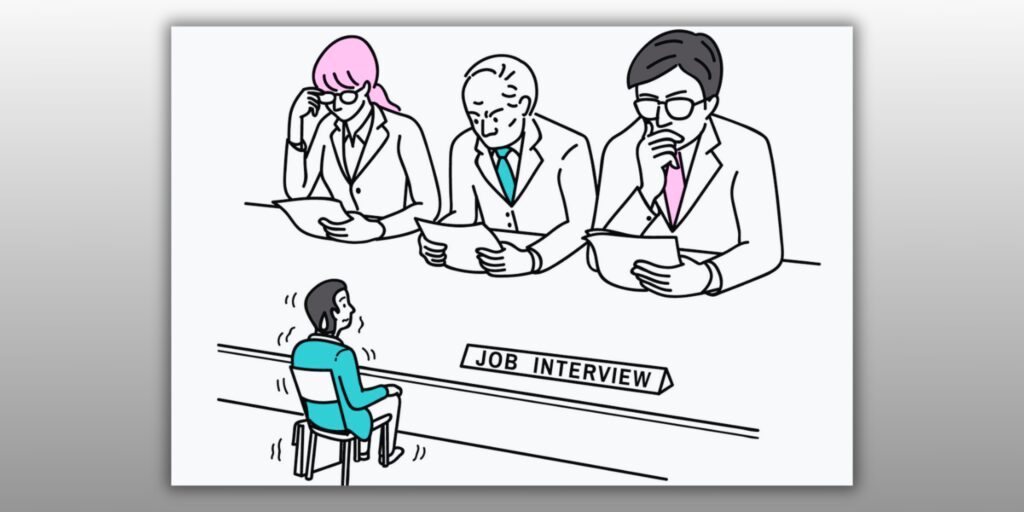
Job interviews can be a nerve-wracking experience, but with the right preparation and mindset, you can walk into any interview with confidence. In this article, we will provide you with essential job interview tips to help you excel, including how to handle common interview questions, the importance of body language, and what to do after the interview. Whether you’re a recent graduate or a seasoned professional, these insights will set you on the path to success.
Understanding the Importance of Interview Preparation
Preparation is the key to a successful job interview. When you thoroughly prepare, not only are you more likely to answer questions with ease, but you also project confidence, which is an attractive quality for any employer. Effective preparation allows you to structure your answers, understand the company’s needs, and tailor your approach accordingly.
Being unprepared can lead to mistakes such as fumbling over answers or misunderstanding the role you’re applying for. Start your interview journey with proper interview preparation tips to avoid these pitfalls. This involves not only knowing interview questions and answers but also understanding the company’s culture, values, and goals.
Researching the Company and Role
One of the most vital aspects of interview preparation is researching the company and the specific role you’re applying for. Understanding the company’s mission and how your skills can align with its objectives will set you apart from other candidates.
Key Aspects to Investigate
Start by visiting the company’s website, focusing on its mission, vision, and values. Look into recent news, projects, and industry trends. Research their competitors to understand the broader market context and identify where your prospective employer fits.
How to Align Your Skills with Their Needs
As you research, think about how your experience and skills align with the company’s needs. Make a list of your achievements and responsibilities that are most relevant to the job description. Being able to explain how you can solve their problems will make a strong impression during the interview.
Common Interview Questions and How to Answer Them
Understanding common interview questions is critical for interview success. Employers typically focus on three types of questions: behavioral, technical, and situational. Each type requires a different approach, but with practice, you can master all of them.
Behavioral Questions
Behavioral interview questions often start with phrases like “Tell me about a time when…” and are designed to understand how you’ve handled situations in the past. The STAR method (Situation, Task, Action, Result) is an effective framework for answering these questions. For example, if asked, “Tell me about a time you worked under pressure,” you would describe a specific situation, the task you needed to accomplish, the actions you took, and the positive result.
Technical Questions
These questions test your industry knowledge and specific skills related to the job. For example, in a software engineering interview, you might be asked to explain an algorithm or solve a coding problem. Practice the technical skills listed in the job description and review common industry knowledge to prepare for these types of questions.
Situational Questions
Situational interview questions assess how you might react in hypothetical scenarios. For instance, “What would you do if you disagreed with your manager on a key decision?” These questions test problem-solving and decision-making skills. When answering, demonstrate logical thinking, empathy, and a focus on company goals.
Body Language and Presentation
Your body language during an interview speaks volumes about your confidence and professionalism. Maintaining the right posture, making eye contact, and giving a firm handshake can make a positive impression from the start. Non-verbal cues like these often influence how the interviewer perceives your attitude and capability.
Posture and Gestures
Sit up straight with your feet flat on the ground and avoid fidgeting. Nod when appropriate to show that you’re engaged and listening attentively. Avoid crossing your arms, as this can signal defensiveness.
Tone and Eye Contact
Maintain steady eye contact but don’t stare. A friendly smile and a warm, clear tone of voice will convey confidence. Speak at a steady pace to ensure you’re understood and avoid rushing through your answers.
Questions to Ask the Interviewer
Interviews are a two-way street. Asking thoughtful questions not only shows that you are interested in the role but also helps you determine if the company is the right fit for you. Some questions to ask in an interview include:
“What are the company’s short-term and long-term goals?”
“How do you measure success in this role?”
“Can you describe the company culture and team dynamic?”
These questions allow you to gauge what’s important to the company while giving you insights into whether the job aligns with your career goals.
Post-Interview Follow-Up Strategies
After your interview, a follow-up is essential. It’s an opportunity to reiterate your interest in the role and remind the interviewer of your qualifications. A well-crafted thank-you email is a simple but effective gesture that can make a lasting impression.
What to Include in Your Follow-Up
In your email, thank the interviewer for their time, briefly restate your interest in the role, and mention one or two key points discussed during the interview. This reinforces your enthusiasm and keeps you top of mind as they evaluate candidates.
Building Confidence Before the Interview
Confidence is key when it comes to nailing an interview. One of the best interview tips and tricks is to practice. Mock interviews with a friend or mentor can help you refine your answers and receive constructive feedback. Preparing for potential top interview questions will also build confidence.
Mental Preparation
Positive self-talk and visualization can reduce anxiety. Visualize yourself succeeding in the interview, speaking confidently, and forming a connection with the interviewer. Mental rehearsals are just as important as practicing interview questions and answers.
Practical Preparation
Ensure you have all necessary documents ready, such as multiple copies of your resume, a list of references, and any other materials requested by the employer. Dress appropriately for the role, ensuring that your outfit aligns with the company’s dress code.
Mistakes to Avoid During Interviews
Even the best-prepared candidates can slip up if they’re not careful. Avoiding common interview mistakes is key to leaving a positive impression.
Talking Too Much or Too Little
Finding the right balance is essential. Rambling on can make you seem unprepared while offering only brief answers can signal a lack of interest. Practice concise but thorough answers to avoid this pitfall.
Being Overly Negative
Even if your last job wasn’t perfect, avoid speaking poorly about previous employers. Instead, focus on what you learned and how you want to grow in your next role.
Not Asking Questions
Failing to ask thoughtful questions can be perceived as a lack of interest. Always come prepared with a list of questions to ask the interviewer. This shows that you are engaged and thinking critically about the opportunity.
Conclusion
Mastering a job interview takes time, practice, and a solid process understanding. By implementing these job interview tips, conducting thorough research, and preparing for common interview questions, you can walk into your next interview with the confidence needed to succeed. Whether you’re preparing your answers, improving your body language, or following up after the interview, each step is essential to landing the job you desire.
For more job interview tips and career advice, explore the comprehensive resources available at themsigroup.com and get ready to ace your next job interview with confidence!
